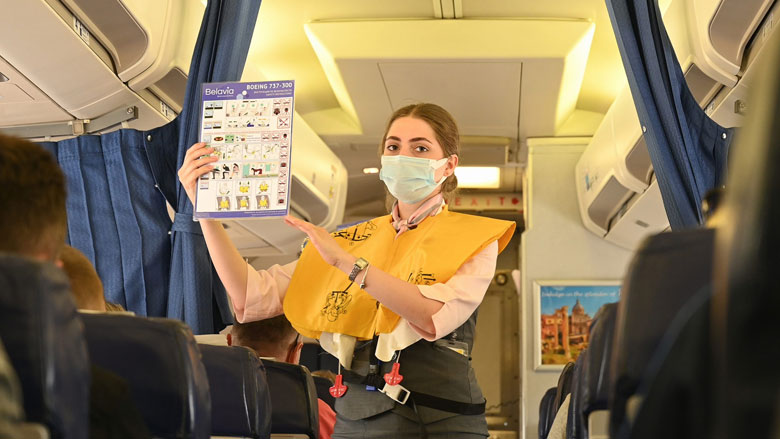ICAO/UNWTO joint statement: International Civil Aviation Day Message
 The COVID-19 pandemic brought global air mobility and tourism to an abrupt halt. It also pressed pause on trillions of dollars worth of economic activity. Millions of livelihoods and businesses have been placed at risk. And while increasing vaccination rates are helping to kickstart the return of international aviation and restart tourism, much more still needs to be done.
The COVID-19 pandemic brought global air mobility and tourism to an abrupt halt. It also pressed pause on trillions of dollars worth of economic activity. Millions of livelihoods and businesses have been placed at risk. And while increasing vaccination rates are helping to kickstart the return of international aviation and restart tourism, much more still needs to be done.
We therefore add our organizations’ voices to those of the G7, G20, and the many countries who have called for borders to be opened to fully vaccinated travelers, travelers with acceptable proof of recovery from previous infection, and travelers holding mutually recognized and ICAO VDS-secured personal health certificates.
We also jointly stress that restrictions on travel considered in response to new variants of the COVID-19 virus must be only used as a very last resort. Such restrictions are discriminatory, ineffective and against the guidance of the World Health Organization.
ICAO and UNWTO also call for equal access to vaccines, and for efforts towards vaccine equity to be intensified and accelerated. This is especially critical for developing countries still bearing the brunt of the pandemic and least able to cope with its economic and social impacts.
With pent up travel and tourism demand now clearly evident in every global region, and with better mitigation strategies and greater international coordination in place, our organizations believe that our sectors can be drivers for economic recovery, both in the developed and the developing worlds.
However, as the restart of international civil aviation and tourism does get underway, ICAO and UNWTO recognize that a return to ‘business as usual’ would be a dereliction of responsibility in a post-pandemic world facing a climate crisis and ongoing economic inequality.
To build greater resilience to future health emergencies within our respective sectors, our agencies will work with governments to improve travel and tourism crisis response coordination, and to rethink and modernize every step of the passenger journey, with a focus on safety and security. Air travelers must be able to expect a safe, secure and healthy travel experience from check in to arriving at their destination.
To ensure the sustainability of air tourism in the face of the climate crisis, we will also take every opportunity to facilitate and accelerate the pace of innovation. In particular, we will advance progress towards the use of renewable energy, sustainable fuels, and other emissions reduction and elimination solutions, while continuously encouraging countries and the industry itself to meet or surpass their commitments.
And, as global air connectivity continues to expand, and to connect more of us to each other and to our natural environments, we must ensure that it does so on a progressively greener and more sustainable basis. Countries must set aggressive targets through our agencies so that international and domestic commitments progress together and so effectively address the impacts of travel and tourism.
The outcome of our shared efforts will play a critical role in assuring the most basic capability of many countries to invest toward and realize the UN Sustainable Development Goals, and all objectives to build-back-better in global air connectivity and tourism must be reviewed and fine-tuned in support of the 2030 Agenda and Our Common Agenda objectives.



